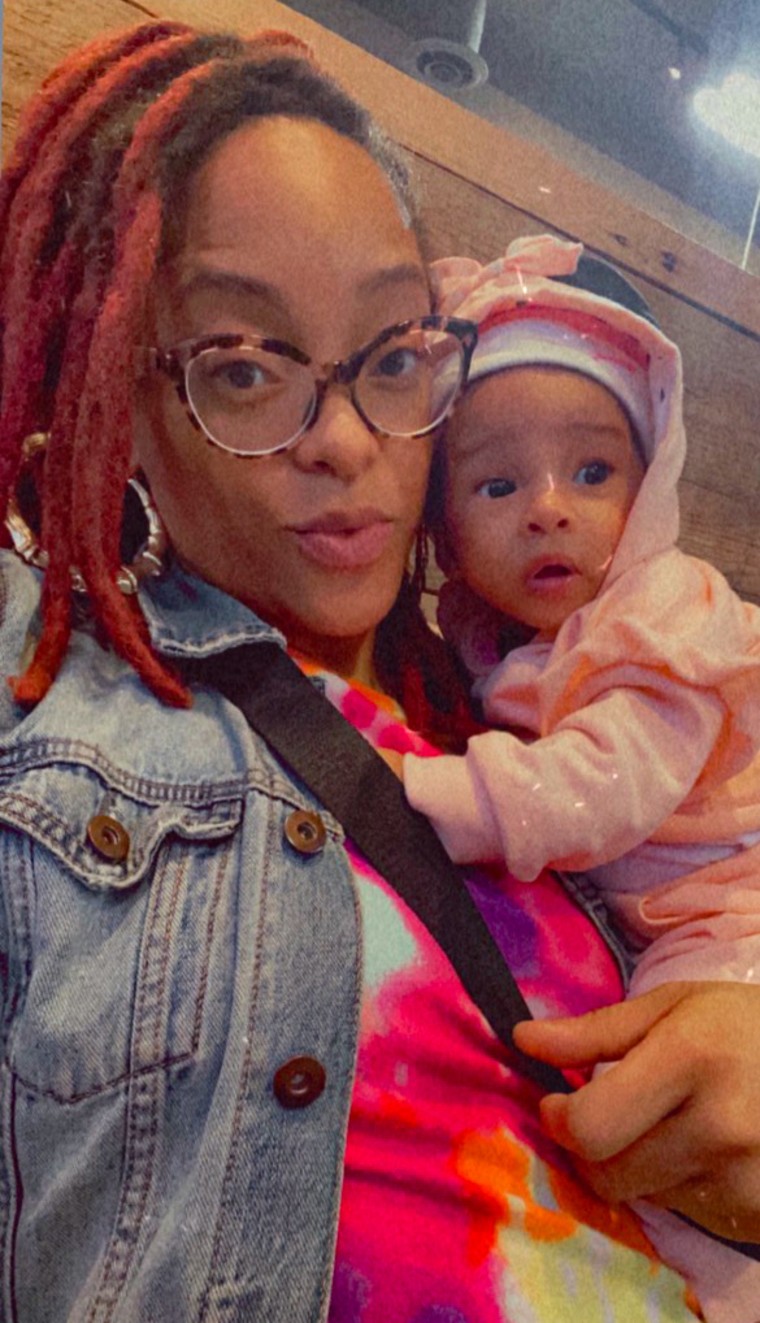Major retailers are now limiting the amount of baby formula that customers can buy, in response to the baby formula shortage that’s causing growing panic across the country.
CVS, Walgreens and Target are among the stores putting limits on how much formula customers can buy at one time.
“Following supplier challenges and increased customer demand, we’ve added a limit of three baby formula products per purchase in our stores and online,” a spokesperson from CVS tells TODAY Parents. “We’re continuing to work with our baby formula vendors to address this issue and we regret any inconvenience this causes our customers.”
A Walgreens spokesperson tells TODAY Parents: “Due to increased demand and various supplier challenges, infant and toddler formulas are seeing constraints across the country. Similar to other retailers, we put into effect purchase limits of three per transaction on all infant and toddler formulas to help improve inventory. We continue to work diligently with our supplier partners to best meet customer demands.”
Target is limiting online purchases of formula as well.
According to Datasembly, a retail data analysis company, baby formula shortages were at 23% in January “and have continued to worsen, showing (out of stock) levels now at 31% as of April 2022.”
The shortages are due to a combination of “inflation, supply chain shortages, and product recalls,” Datasembly founder and CEO Ben Reich said in a news release. “We expect to continue to see the baby formula category being dramatically affected by these conditions.”
In February, the U.S. Food & Drug Administration announced it was investigating brands Similac, Alimentum, and EleCare after four infants were hospitalized and two died after consuming powdered products from the Abbot Nutrition facility in Sturgis, MI. Abbot’s voluntary recall was related to Cronobacter sakazakii, which according to the Centers for Disease Control and Prevention, can cause severe illness in babies. In March, the FDA concluded partly that Abbot “did not ensure that all surfaces that contacted infant formula were maintained to protect infant formula from being contaminated by any source.”
“We know that this recall has further exacerbated an industry-wide infant formula supply shortage,” an Abbot spokesperson told the Washington Post last month. “We are doing everything we can to address it.”
Abbot is now telling NBC News "There is no evidence to link our formulas to these infant illnesses."
The company added that subject to FDA approval, their Sturgis, Michigan, facility could reopen within the next two weeks. From the time they reopen, it will take six to eight weeks before product is available on shelves.
Parents react to formula shortages
Most moms and dads don’t care about the why — they just want to feed their kids. Peek into any online parenting group and you’ll see panicked discussions about the baby formula shortage.
“I’m very stressed,” Chevella Lawrence, a mom in Washington, D.C, told TODAY Parents earlier this year. “I have family members in Maryland and Virginia looking to find it for me. I’ve been begging friends who work in retail to call me as soon as they get a shipment. I don't know what to do at this point.”

In Delaware, Meredith Agleton and her wife, April, were in the same boat as Lawrence earlier this year. Their baby son, Will, who was born premature, drinks a special hypoallergenic formula — but it was nowhere to be found.
Meredith’s mother, Rebecca Brown of Clarksville, Tennessee, located a few cans at the Army base commissary. But she said the shelves at Walmart and Target were picked clean.

“I’m very worried,” Brown said. “My grandson has health issues and needs to eat.”
In an interview earlier this year, Dr. Katie Lockwood, a pediatrician at Children’s Hospital of Philadelphia, advised parents not to panic. Here are some things to consider if you depend on formula to feed your child:
1. Ask your pediatrician for help
“We often have samples in our office of the more specialized formulas that can be hard to find,” Lockwood told TODAY Parents.
Doctors also often have relationships with formula companies and can request special shipments for their patients. They also may know of regulated breast milk banks that can provide safe, pasteurized breast milk for babies.
2. Be flexible on brands
It’s safe to switch between baby formula brands as long as it’s the same type of formula, Lockwood said. For instance, don’t switch from cow milk protein-based formula to soy.
“The brands are all very similar,” she explained. “I use the analogy that it’s sort of like Coke and Pepsi. Your child might notice a slight change in taste, but it’s virtually the same thing.”
Lockwood noted that if your child is on a specialized type of formula for an allergy or intolerance, you’ll need to find another specialized formula that meets that need.
3. Don’t try to make your own formula at home
“Formula is a complex product. It’s a very complicated balance of having enough water and nutrients,” Lockwood said. “Having too much extra water can be very dangerous to some children’s brains — and having too little water can be dangerous. It’s really a delicate balance that’s best done by a chemist.”
The U.S. Food and Drug Administration regulates commercial baby formulas but does not oversee recipes for homemade formulas. It warns against making formula at home, citing the possibility of “very serious health concerns” for the baby.
“The potential problems associated with errors in selecting and combining the ingredients for the formula are very serious and range from severe nutritional imbalances to unsafe products that can harm infants,” the agency notes.
Lockwood added that stretching formula by adding water also poses health risks.
“You don’t want to give infants — especially under the age of six months — extra water in the formula,” Lockwood said. “It can cause seizures and brain swelling, which can be fatal. You’re also diluting the calories that they’re getting.”
4. Think outside the big box
“Sometimes smaller mom and pop stores carry formula,” Lockwood said. “Think about places that might not have their shelves wiped out, like family-owned pharmacies and convenience stores.”
Related: